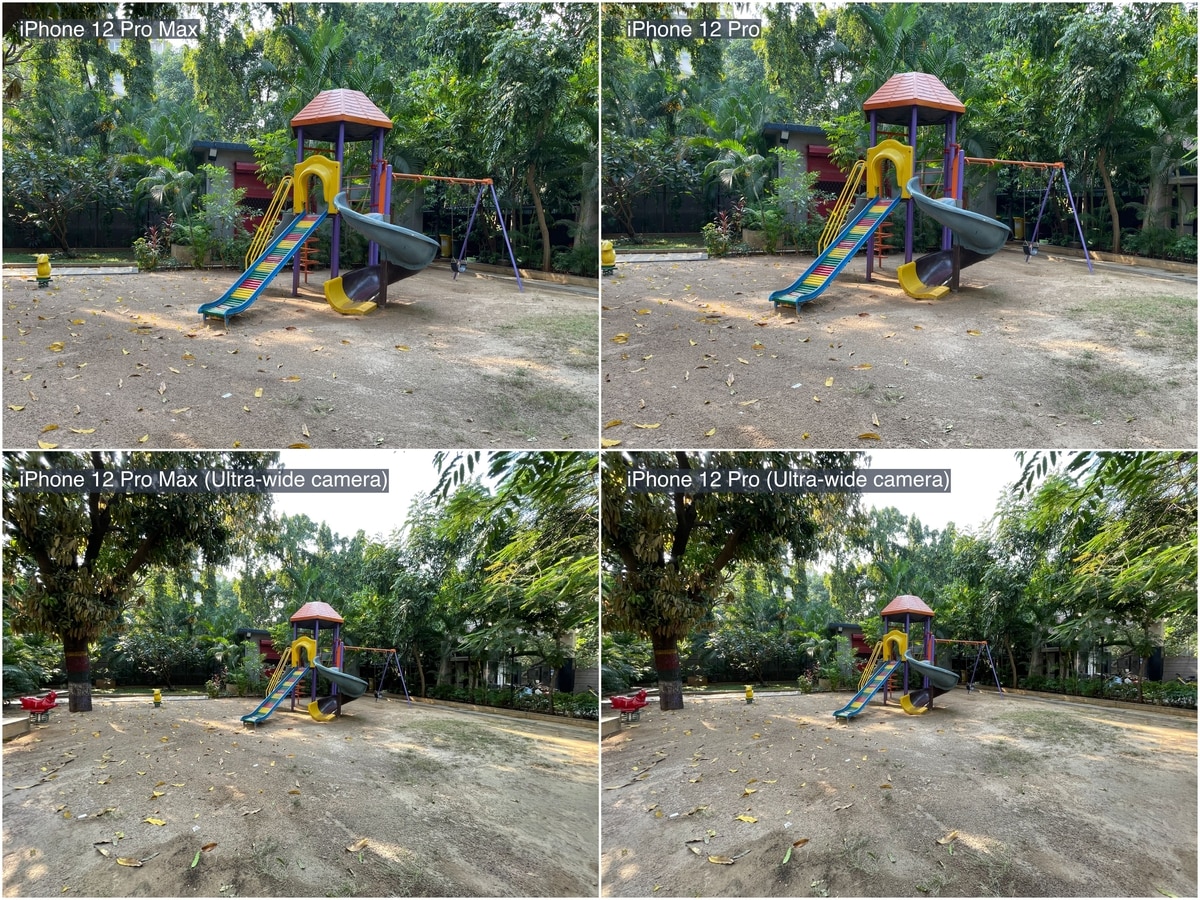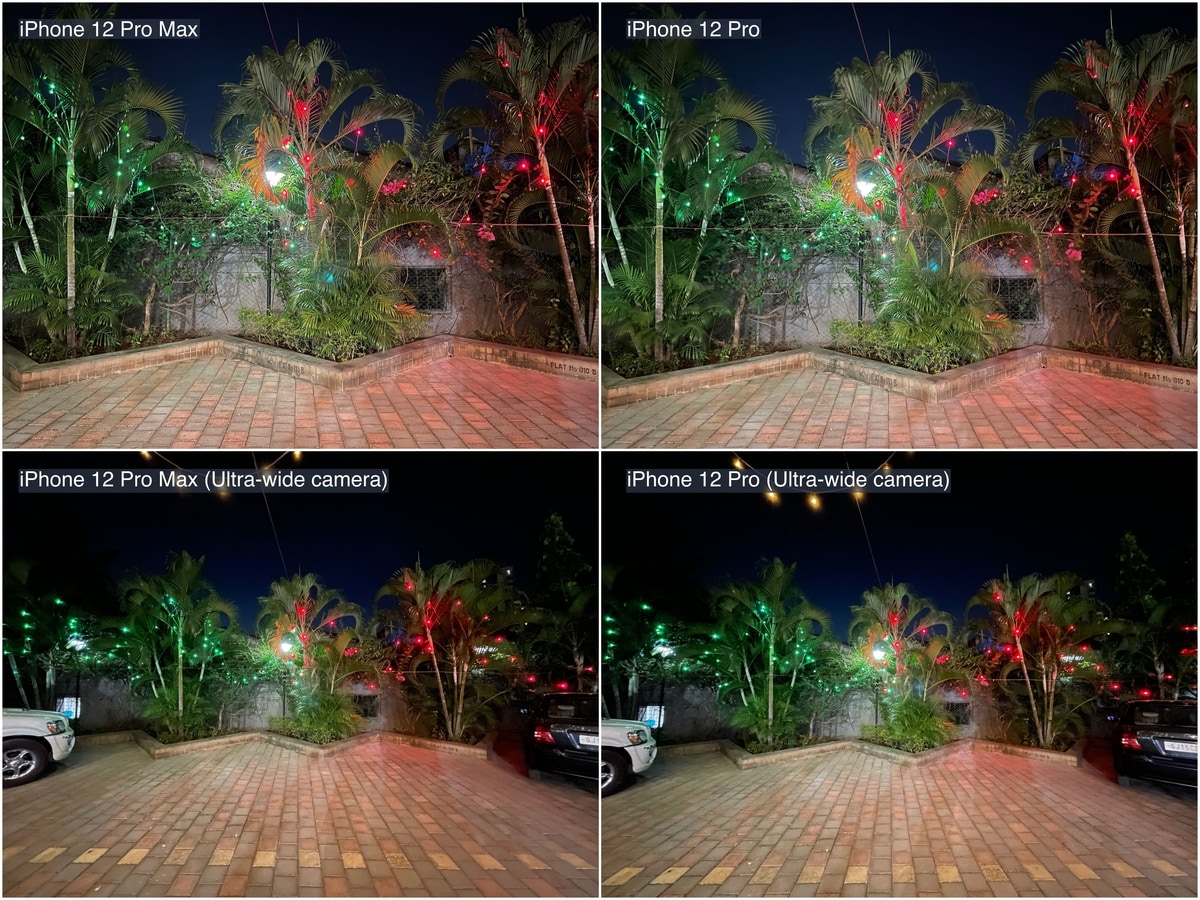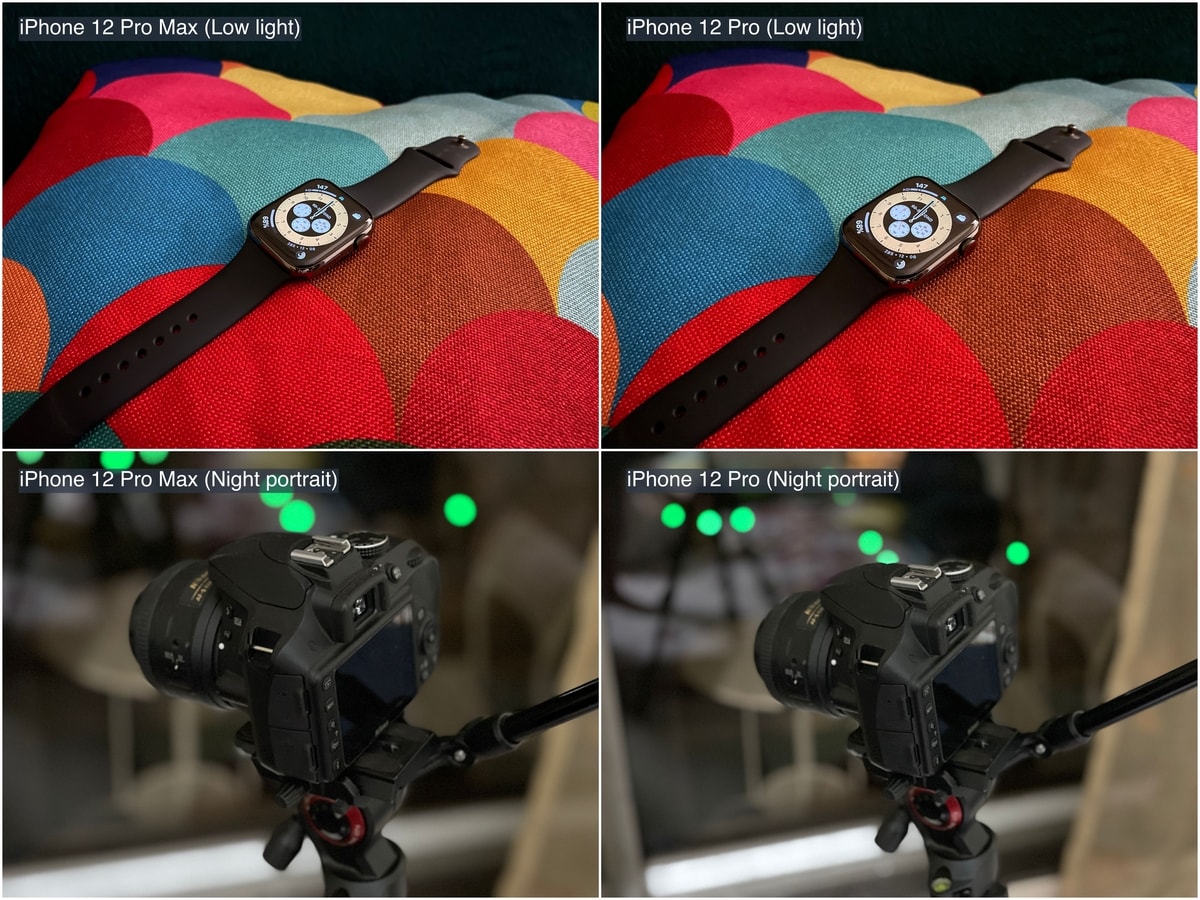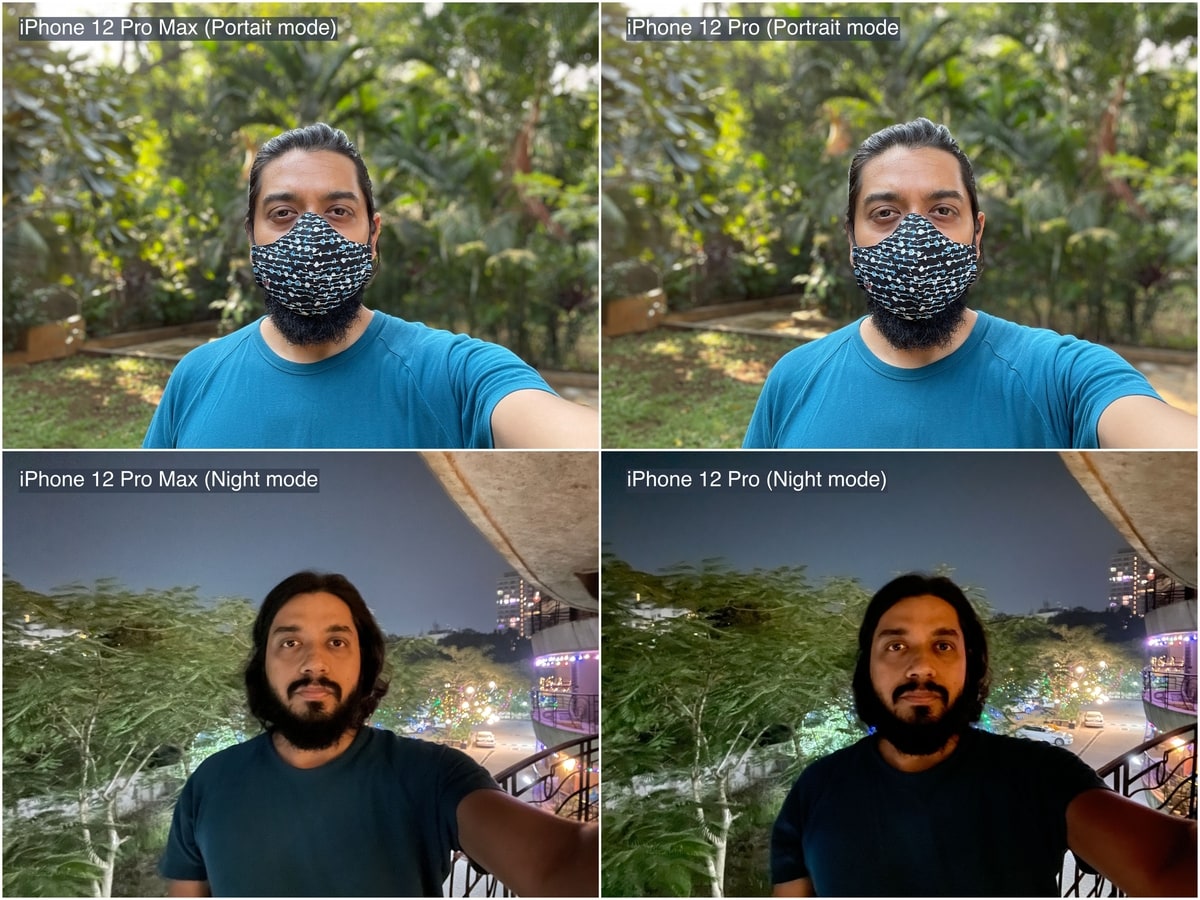The iPhone 12 Pro Max is Apple’s most ambitious iPhone yet, and naturally commands a steep premium too. In my iPhone 12 Pro review, I mentioned that even though the smaller Pro model is a superb offering, it’s probably not the smartest choice. If you are thinking of going all-out on your iPhone purchase this year, then you should probably look at spending a bit more and getting the iPhone 12 Pro Max instead. After using it for a week, I think I was right in making that assumption.
We’ve already covered the iPhone 12 Pro in great detail, and since the 12 Pro Max is very similar, we’ll be focusing mainly on what’s different between the two models in this review. Let’s begin.
iPhone 12 Pro Max pricing and variants
The iPhone 12 Pro Max is available in the same storage variants and colours as the iPhone 12 Pro, starting with 128GB for Rs. 1,29,900, 256GB for Rs. 1,39,900, and 512GB for Rs. 1,59,900. There’s roughly a Rs. 10,000 premium over all variants of the iPhone 12 Pro in India. Apple sent me the same Pacific Blue colour again, but both models are also available in Graphite, Silver and Gold.
iPhone 12 Pro Max design and display
One of the main differences between the iPhone 12 Pro Max and the iPhone 12 Pro is their physical size. The iPhone 12 Pro Max is Apple’s largest iPhone yet, and its size seems amplified due to the flattened edges of the top and bottom glass, and the flat frame. It’s taller and wider than last year’s iPhone 11 Pro Max, but slimmer at 7.4mm than any previous ‘Max’ model. It’s a heavy phone too, weighing 226g. I think I have moderately large hands, but even for me, the iPhone 12 Pro Max felt a bit too large to use comfortably at first, and I’m not even talking about one-handed use here.
However, despite this, I kind of grew accustomed to it after a while. In a post-pandemic world, I would never think about using this as an everyday phone considering my commute by public transport. In our current situation though, where nearly everyone’s working from home, I think I can accommodate this size for daily use. It’s still going to be a bit uncomfortable to carry around in your pocket, even more so if you use a case.
The iPhone 12 Pro Max (left) is considerably larger than the iPhone 12 Pro (right)
The build quality is fantastic, just like with the iPhone 12 Pro. You get a stainless steel frame running around all sides, the usual array of buttons and ports for an iPhone, and a frosted glass back panel.
Thanks to its physical size, the iPhone 12 Pro Max also has the largest display ever used in an iPhone. It’s a 6.7-inch OLED Super Retina XDR OLED panel, up from the 6.5 inches of last year’s Max model. It also has a higher resolution of 2,778×1,284 pixels compared to the iPhone 12 Pro, resulting in a slightly higher pixel density. However, everything else including the brightness level, contrast ratio, colour gamut, etc are identical. I really wish that Apple had used a higher refresh rate panel at least on its Max model, but I guess we’ll have to wait till next year and hope for the best.
iPhone 12 Pro Max cameras
Next, let’s jump to the cameras, where Apple has made some major upgrades over the iPhone 12 Pro, on paper anyway. The main rear camera is new and is said to have a 47 percent larger sensor, with bigger (1.7 micrometer) pixels for improved low-light performance compared to the iPhone 12 Pro. Apple has also used sensor-shift stabilisation, which means the sensor itself can move slightly on its axes to compensate for hand shakes, instead of the lens moving (known as OIS). It’s a first on an iPhone, but we’ve seen a similar implementation in the Vivo X50 Pro recently.

The iPhone 12 Pro Max (left) features a larger main camera sensor compared to the 12 Pro
Finally, Apple has also gone with a new telephoto camera with a longer focal length (65mm vs 52mm), so you now get 2.5x optical zoom and 12x digital zoom, compared to 2x optical and 10x digital on the iPhone 12 Pro. A side-effect of having a longer optical zoom range in a similarly sized body as the 12 Pro is that the telephoto camera’s aperture has had to be downgraded to a narrower f/2.2 from f/2.0, but Apple says it has made up for this in other ways.
Other than these changes, the rest of the camera features remain the same as on the iPhone 12 Pro. All the sensors are still 12 megapixels, and all support Deep Fusion, Night Mode, Night Portrait, and Smart HDR 3. The iPhone 12 Pro Max can also shoot Dolby Vision HDR videos at up to 4K 60fps. I’ve compared all the samples to ones shot with the iPhone 12 Pro at the same time, to see how much of an impact the new sensors and lenses have made.
Tap to see larger image
Tap to see larger image
In daylight, the differences in detail between the two phones are mostly negligible. Even if you magnify the images and pixel-peep, it’s hard to find many (if any) differences between photos taken with the iPhone 12 Pro Max and iPhone 12 Pro. This goes for their ultra-wide cameras too, but that isn’t surprising since Apple hasn’t changed anything about the latter.
Tap to see larger image
The telephoto camera of the iPhone 12 Pro Max lets you optically zoom in a bit more than with the iPhone 12 Pro, which is nice, but once again, I didn’t notice a huge difference in image quality in the daytime. Even after digitally zooming in all the way to 12x, image quality was more or less the same.
Close-up photos taken under good light looked great. Colours and details were spot on, and exposure was well balanced. Portrait mode works very well too, whether you use the main camera or the telephoto one. Again, the results I got were very similar to what the iPhone 12 Pro can achieve.
The benefits of the new sensor in the iPhone 12 Pro Max’s primary camera aren’t very evident in daylight shots, but it certainly helps in low-light – though not in the way you might imagine. The iPhone 12 Pro and Pro Max have the same f/1.6 apertures but due to the larger pixels on the Pro Max’s main sensor, it doesn’t need to keep its shutter open for as long as the 12 Pro does in order to capture the same exposure. The iPhone 12 Pro Max will often keep its shutter open for a whole second less, and sometimes it won’t even need to engage night mode at all.
Tap to see larger image
Tap to see larger image
In terms of differences between the two phones’ sample shots, I noticed mildly better details in one landscape shot captured with the iPhone 12 Pro Max, but in most others, including close-ups, there was virtually no discernible difference. Due to the shorter exposure time needed by the Pro Max in low light, it’s much easier to get sharper shots since you don’t have to keep your hands steady for as long.
The wide-angle cameras on both the 12 Pro Max and 12 Pro capture noticeably weaker details compared to their main cameras, but are still way ahead of what the iPhone 11 Pro series could deliver. Night Portrait shots taken with the iPhone 12 Pro Max also look great.
Tap to see larger image
The selfie camera is identical to that of the iPhone 12 Pro, so unsurprisingly, the results were very similar once again. Portrait mode works well, and in low light, Night Mode helps produce very good exposures.
Videos shot at 4K during the day looked great, with excellent colours and details. Dolby Vision HDR videos look even better when watched on the iPhone 12 Pro Max’s display. The new sensor-shift stabilisation is effective, as video recorded with the Pro Max doesn’t have any noticeable jitter when shooting in daylight, something I did notice with the 12 Pro when comparing videos shot with both side-by-side. Videos recorded at night had good details and colours, and there’s very little jitter when walking about. The stabilisation is slightly better than that of the iPhone 12 Pro, but not by a whole lot. If you were expecting gimbal-level stabilisation from the iPhone 12 Pro Max, that’s not the case.
The camera upgrades to the iPhone 12 Pro Max over the iPhone 12 Pro do make it easier to capture low-light photos, and you get the benefit of slightly higher optical magnification with the telephoto camera as well as slightly better stabilisation in videos. Overall though, the results aren’t a huge leap ahead in my opinion.
iPhone 12 Pro Max battery life
According to a third-party report, the iPhone 12 Pro Max features a 3,687mAh battery which is a lot higher than the iPhone 12 Pro’s battery capacity, but a bit lower than that of the iPhone 11 Pro Max. Nevertheless, I found battery life to be excellent, as the iPhone 12 Pro Max easily lasted me up to two full days on one charge with medium to light usage. Gaming and heavy use of the cameras drained it a bit quicker, but the battery is still enough to carry you through one full day, and then some. In our HD video loop test, the iPhone 12 Pro Max ran for 16 hours and 52 minutes, which was better than the 12 Pro but not as good as what we’ve seen from many Android phones.
You can charge the iPhone 12 Pro Max quickly using any standard USB Type-C Power Delivery charger. With the 18W charger that came with the iPhone 11 Pro, I managed to get to 47 percent in half an hour, and 83 percent in an hour. You can use Apple’s optional MagSafe wireless charger, but be aware that it heats up quite a bit and it will take longer to charge the phone fully compared to wired charging.
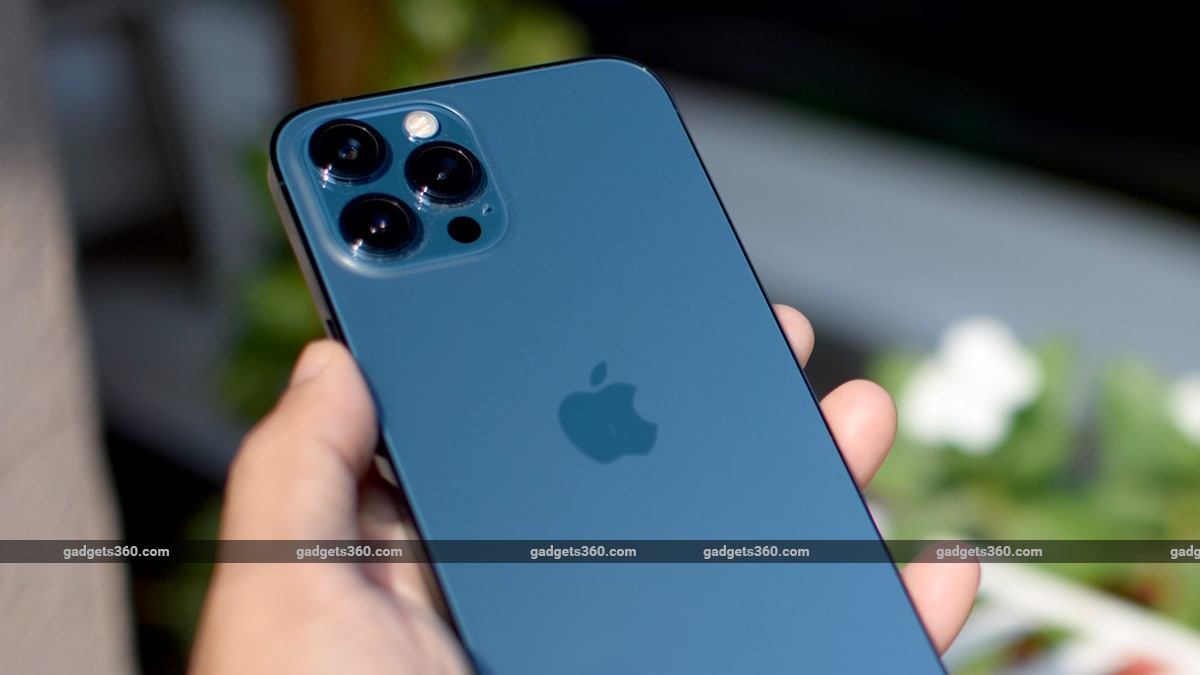
The iPhone 12 Pro Max delivers much better battery life compared to the iPhone 12 Pro
iPhone 12 Pro Max performance
The performance of the iPhone 12 Pro Max is very similar to that of the iPhone 12 Pro, which is why I’ve left this section for the very end. It uses the same Apple A14 Bionic SoC, there’s 6GB of RAM, 5G, and all the other good stuff such as an IP68 rating and eSIM functionality.
The iPhone 12 Pro Max is a large and heavy phone, and you’ll have to use it with both hands most of the time. If you like large smartphones then you might grow accustomed to its unwieldy size. I still fear it falling out of my pocket when riding a bike, but other than that, the size started to grow on me after about a week. Texting is easier, apps and games feel more immersive, and videos are more enjoyable. The display has also received high praise when it comes to colour accuracy and contrast.
iOS 14 runs very well, and my experience was similar to when I used the iPhone 12 Pro. However, I just wish that Apple would allow better multitasking options on the 12 Pro Max to take advantage of all this screen space. Most popular video streaming apps will run in picture-in-picture mode automatically if you switch to another app but that’s pretty much the extent of what you can do. Reachability is also a bit of an issue with such a large display, but thankfully, the old swipe-down gesture to pull the screen’s contents downwards does the trick.
Just like the iPhone 12 Pro, the iPhone 12 Pro Max runs very hot when gaming. Games such as The Pathless look fantastic, but also cause the steel frame and the rear glass to get very hot, even after just a few minutes. This does cause a bit of a dip in the framerate in some games, as the system seems to throttle the SoC a bit in order to keep the temperature from going even higher. Without a case, the phone gets a bit uncomfortable to hold after a while.
Verdict
At the end of my iPhone 12 Pro review, I said that you probably should look at the 12 Pro Max instead if you don’t have any budget constraints, and after reviewing it, I feel that it is indeed the better option. Yes, it’s about Rs. 10,000 more than the iPhone 12 Pro no matter which storage variant you pick, but you get a much bigger display, longer battery life, and some improvements to the rear cameras. This model is certainly not for everyone, mainly due to its massive size, but if you can get used to it, it definitely offers the best iPhone experience you can get this year.
If you’re looking for something more compact and don’t mind sacrificing a few features, the iPhone 12 or even the iPhone 12 mini are also still great options and cost way less.
